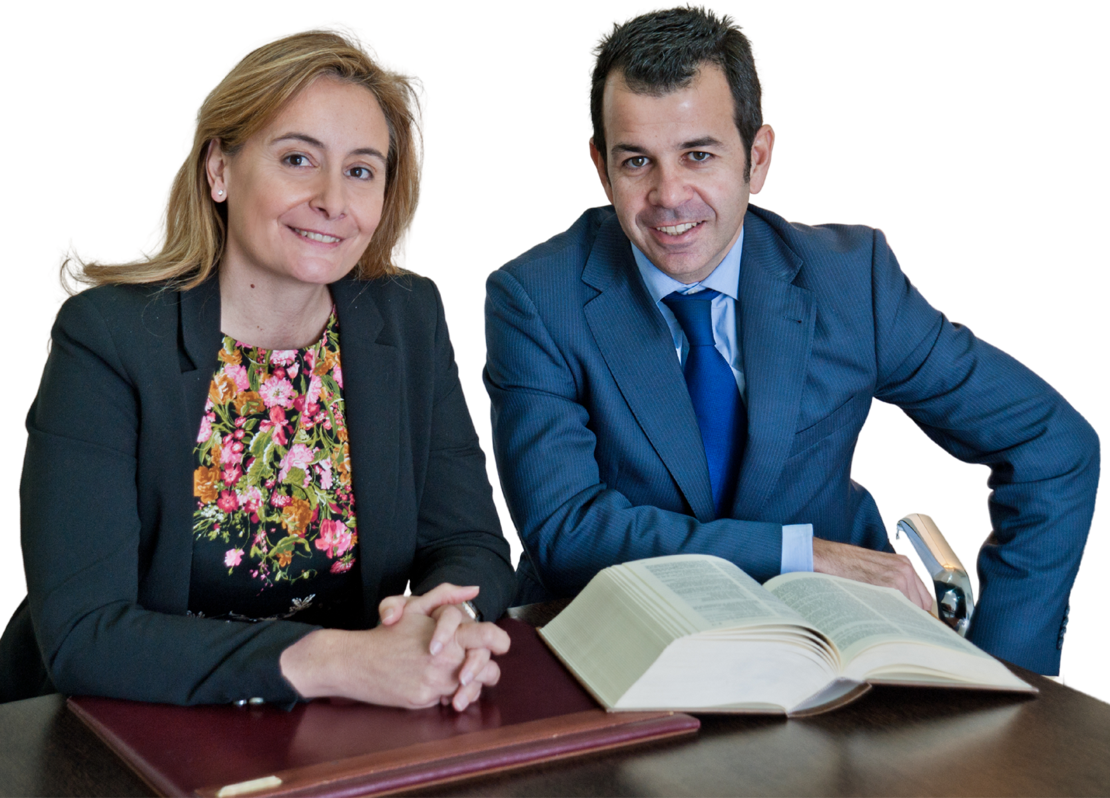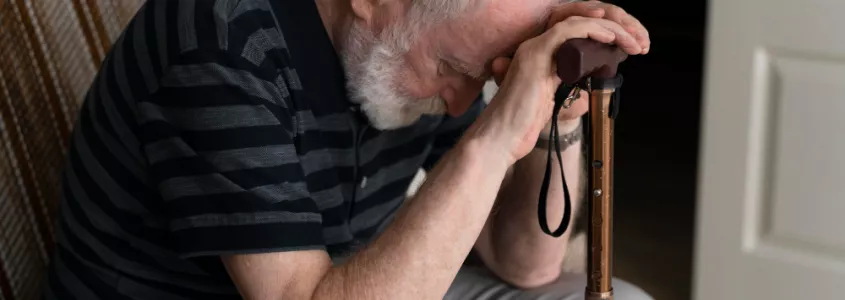
At G. Elías y Muñoz Lawyers, we are experts in inheritance law, and in this article we want to discuss a case of inheritance fraud, as well as another type of...
Your peace of mind starts with a team of family lawyers in Madrid that combines legal strategy with empathy
We help our clients resolve complex family situations with clear information and experience.
Our family law department is led by Miss Rus María Muñoz Gómez, a lawyer with more than 30 years of experience in family matters: divorces, separations and inheritances , among others.

We accompany you throughout the procedure both in Madrid and throughout Spain and give you a second opinion if you need it.
We ensure the well-being of our clients and their children and protect their assets.
We help to avoid conflicts between heirs and to pay the corresponding taxes.
If you have to go to court, we will conduct the proceedings before the family courts.
We provide advice in relation to marriage contracts and the liquidation of community property.
Our team of lawyers advises on any issue related to Family Law.
If you wish, leave us your contact information and we will call you back.
Your online lawyer will provide you with the best service.
Below we answer some of the most frequently asked questions in relation to family matters:
A family lawyer deals with different types of matters such as: divorces, separations, modifications of measures, inheritances, wills, or legal incapacitation, among others.
Frequently asked questions on matrimonial property regimes
When a marriage is entered into in the community of property regime, the property and the profits obtained during the marriage are considered common to both spouses and are divided 50/50 when this community of property (marriage) is dissolved.
However, when there is separation of property, each spouse retains ownership and administration of his/her individual property.
The choice between these regimes is of great importance as it directly affects the way in which property is managed and distributed during and after the marriage. However, there is no difference with regard to the assets that each spouse had before the marriage.
Assets acquired before the marriage are generally the property of each of the spouses, regardless of the matrimonial property regime.
Therefore, when a couple marries in community of property, although there is a presumption of community property for assets acquired during the marriage, this does not affect assets previously acquired by each of the spouses.
For example:
One of the spouses owns a house before the marriage. If there is no change in the ownership of that house, that property will continue to belong to that spouse alone if the marriage is dissolved (irrespective of the chosen matrimonial property regime).
The advantages are many and include, for example, that debts incurred by one spouse during the marriage will not affect the other spouse. Each spouse will maintain his or her financial independence.
When an ex-partner does not comply with the stipulations of a settlement agreement, it is possible to request the enforcement of the agreement before the competent court. If the agreement has been judicially approved, it is included in the court decision and can be enforced in all its terms.
Non-compliance with the visiting arrangements may give rise to various non-monetary enforcement measures, such as the imposition of coercive fines. These fines are applied both in cases of non-compliance with payment obligations and in cases of very personal obligations, such as visiting arrangements.
In order to claim maintenance payments in court, enforcement proceedings must be initiated, allowing for the extension of enforcement for overdue periods of time.
It is indeed possible to change the agreement if the situation of one of the parents has changed in a significant and stable way (and it is not just a personal whim).
A frequent situation in which a change of the agreement is requested is the loss of employment of one of the parents. In such a case, the judge can be asked to modify the terms of the agreement.
If they do not tell you important things about the children, the ideal is to talk about it and come to an agreement, this is logical. But in the event that an agreement is not reached, either parent can go to the judge to decide who makes the decision or even decide directly what is the most positive agreement for the children.
For example:
If one of the parents decides to change school without giving notice, the judge can be called upon to decide what is best for the children.
Frequently asked questions on non-compliance with judgments or settlement agreements
Frequently asked questions on separation and divorce
When a person wants to get divorced, the first doubts that arise are: What steps do I have to follow and what do I have to be careful about?
At this point, it is advisable to first consult a family lawyer specialised in divorce who can advise you on such an important and vital step; furthermore, in order to file for divorce, it is necessary to have the assistance of a lawyer.
The first step, after taking appropriate advice, is to file a petition with the competent court of first instance (the court may specialise in family law if it is located in a provincial capital).
The divorce petition will include a proposal to regulate the future situation after the marriage has ended.
This proposal must necessarily detail such important aspects as: parental authority, custody and guardianship, visiting arrangements, use of the family home, compensatory and alimony pensions and marriage burdens.
There is also another requirement: at least three months must have passed since the marriage was entered into in order to initiate a divorce (except in exceptional cases where it is proven that there is a risk to the life of one of the spouses or their children).
Separation consists of suspending your life together with your partner, but without the dissolution of the marriage having taken place.
Divorce definitively breaks the link between the two partners and also makes it possible to remarry.
It is a relatively quick procedure that consists of the presentation of the settlement agreement that has been agreed between the two parties. After hearing the Public Prosecutor's Office, it is approved by the judge.
There is also the possibility of a divorce by mutual agreement before a notary, but only in cases where the couple have no children in common.
Yes, the intervention of a lawyer is compulsory in divorce proceedings, both in contentious and consensual (express) divorces. It is logical for lawyers to be present because it ensures the proper representation and defence of both parties.
Sometimes, for various reasons, one of the spouses refuses to sign the divorce. In such cases, contentious divorce allows one of the spouses to request the dissolution of the marriage without the consent of the other.
Compensatory pension is calculated taking into account several factors:
Let's look at an example:
A couple was married for 15 years. During that time, the wife put her professional career on hold in order to take care of the children, while her husband worked and worked his way up in his company. After the divorce, the woman has no income of her own and finds it very difficult to re-enter the labour market. In this case, the judge could establish a compensatory pension for the ex-wife, with the aim of helping her to find a job and regain her financial independence.
A spouse who suffers a significant financial imbalance after the divorce can apply for this pension. This occurs when one of the parties has been financially dependent on the other or has difficulties in maintaining the same standard of living as during the marriage.
Example:
A couple divorces after 23 years of marriage. The wife has always worked, but at a much lower salary than her husband, who has been the main breadwinner in the family. If the wife proves that the divorce leaves her at a significant financial disadvantage, she can apply for alimony.
The length of time depends on each individual case and on the judge's decision. It can be temporary, until the beneficiary recovers financially, or indefinite if the person has no possibility of generating income.
The following case is a clarifying example:
A married couple divorces after 30 years of marriage. The woman has been a housewife all her life, has never worked professionally outside the home and is 60 years old. Her age and the fact that she has never worked outside the home makes it extremely difficult for her to find a job. In this case, the compensatory pension could be indefinite. However, if she were 40 years old and had the possibility to re-enter the labour market and take up a job, the compensatory pension could be established for a few years only.
If the payer of the maintenance allowance has a significant reduction in income, and there is a high probability that this reduction will be permanent, he or she can apply to the judge for a modification or even elimination of the allowance.
Such situations often occur when the payer loses a well-paid job and is subsequently unable to find a job with remotely similar characteristics. It also occurs when the payer loses his job and does not find a new job within a reasonable period of time. In these situations, if he proves that the situation is permanent and has not been caused intentionally, he can ask for a reduction or suspension of the payment.
Unmarried couples do not have the same right as married couples to a compensatory pension, but they can still claim compensation if there is a serious financial loss as a result of the relationship.
Frequently asked questions about compensatory pension
Frequently asked questions on maintenance
It should cover everything necessary to ensure the upbringing and well-being of the children: food, housing, clothing, education, medical care and essential leisure. It is divided into ordinary expenses (foreseeable and recurrent) and extraordinary expenses (unforeseen, such as a medical operation), which are unforeseeable and require the agreement of both parents.
Entitlement to maintenance does not automatically end at the age of 18. It continues if the child is still in education or is unable to support himself/herself.
Entitlement to maintenance ceases when the child becomes financially independent or leaves the family home.
If a parent loses his or her job and cannot afford the pension, he or she can apply for a temporary reduction or suspension. He must show that the loss of income is significant, permanent and not voluntary.
Generally, the pension is updated every year according to the Consumer Price Index (CPI), thus ensuring that it does not lose its value with inflation. There is also another way to update it, which is to take into account the variation in the income of the breadwinner, but this method is more complex and less used.
Yes, but it must be proven that the decrease in income is significant and permanent and that it was not voluntarily caused.
Yes, but there must be a significant change in the original circumstances to justify the modification.
Example:
A father had joint custody, but now his job requires him to travel constantly. The mother could ask for sole custody to ensure stability for the child.
In order to apply for a modification of maintenance, it is necessary to demonstrate a change in the circumstances that were taken into account when the initial amount was fixed.
This change must be substantial, stable and not brought about voluntarily by the person requesting the modification.
The procedure for applying for modification involves filing an application with the competent court, accompanied by evidence to support the change of circumstances.
No, unless both parents agree or a judge authorises it.
Example of a fairly common situation:
A mother wants to move to another city for work, but her ex-partner does not agree. In this case, she would have to go to a judge to apply for permission.
When there is no agreement between the parents to modify the agreement, it is possible to resort to a contentious procedure to request the modification of the agreed measures. The modification can be requested by either parent, and the judge will assess whether the new circumstances justify the change in the interests of the child. The intervention of the Public Prosecutor's Office is essential in these cases.
Frequently asked questions on modification of measures
Frequently asked questions on legal incapacitation
Judicial incapacitation used to be used to legally restrict the capacity of a person who could not make decisions for him or herself. However, Law 8/2021 has removed this concept and replaced it with support measures to ensure that persons with disabilities can make decisions with assistance if they need it.
The appointment of a court advocate is essential in situations where legal representatives are unable to act, thus ensuring that decisions are made respecting the will of the person concerned.
Example:
An elderly person suffers from advanced Alzheimer's and her family decides to apply for a legal support measure for a guardian to manage her assets and medical decisions on her behalf.
The legal standing to apply for disability support measures is clearly defined in the legislation, allowing the person concerned, his or her spouse, descendants, ascendants or siblings to initiate the process.
The legal capacity of persons with disabilities has undergone a significant reform with Law 8/2021, which seeks to guarantee their exercise on equal terms with other persons. This law establishes that persons with disabilities have full legal capacity, and only in exceptional cases, when it is not possible to determine their will, wishes and preferences, support measures may include representative functions.
The appointment of a legal guardian for an incapacitated person is a process that involves both the will of the parents, expressed in a will or a notarised public document, and a court decision based on the best interests of the child.
The judge chooses the guardian based on the best interests of the protected person. Close relatives are usually prioritised, but if there are no suitable candidates, a professional guardian or an entity is appointed.
Example:
A parent has a child with a severe disability. In his will, he leaves it written that his sister will be his guardian when he dies. The judge will respect this will unless there are reasons not to do so.
Legal capacity refers to a person's ability to be the subject of rights and obligations, while capacity to act is the ability to perform legal acts effectively.
Traditionally, a distinction was made between legal capacity and capacity to act, but this distinction has been overcome in relation to persons with disabilities. Legal reform has eliminated civil incapacitation, replacing it with support measures that enable people with disabilities to exercise their legal capacity on an equal basis with others. These measures can range from friendly accompaniment to delegated decision making, always respecting the will and preferences of the person with a disability.
When a person dies without a will, intestate succession, also known as legal succession or intestate succession, is opened. This succession is governed by the provisions of the law, which establishes an order of appeals to determine who the legitimate heirs are.
Under the common law, the order of call is as follows:
Yes, but only if there are legal grounds, such as that the testator did not have the capacity to do so, that he or she has been unduly influenced, or that the document contains serious errors.
A challenge to a will can be based on the nullity or invalidity of its provisions, depending on the seriousness of the defects present.
Example:
A sick old man signs a will in which he leaves his entire estate to his caregiver, excluding his children. If the children can prove that the old man was not of sound mind or that he was manipulated, they can contest the will.
Inheritance and Gift Tax must be paid in the autonomous community where the deceased resided. Depending on the region, reductions and allowances may apply.
For example:
In Madrid, children who inherit from their parents pay a reduced tax, while in other communities the amount may be higher.
The reserved portion is a portion of the deceased's estate reserved by law for the forced heirs, mainly children, descendants, ascendants and the widowed spouse. It is one third of the total amount of the inheritance.
Example:
John wants to leave his entire inheritance to his new partner, but he has two children. The law requires that at least one third of the inheritance goes to them.
Frequently asked questions about inheritance and wills
Frequently asked questions on the extinction of joint ownership and condominiums
It is the process by which a property owned by several persons ceases to be in joint ownership. It can be resolved in several ways:
1. by selling the property and dividing the money.
2. By awarding it to a single co-owner, who compensates the others financially.
The extinction can be total, when a single co-owner keeps the entire property, or partial, when only the number of co-owners is reduced without completely eliminating the community.
The following example helps us to understand a fairly common situation, the extinction of the condominium of an inherited house:
Two brothers inherit a house; one wants to sell it and the other wants to keep it. To avoid selling the property, the brother who wants to keep it can pay his brother his share.
In this article on the extinction of joint tenancy or condominium, we deal in depth with all the queries that may arise in relation to this complex subject.
In the context of the extinction of the condominium, the valuation of the property focuses on determining the value of the part that is awarded to each co-owner. This process involves considering the value of the bare ownership and the usufruct, especially when there are rights of usufruct, use and habitation.
The valuation is carried out taking into account the value attributed to the usufruct at its constitution, and not at the time of extinction, which excludes the practice of value verification. Furthermore, in cases of extinction of condominium over indivisible assets, the outgoing co-owner must be compensated, which may involve compensation in cash or in kind, without this being considered an onerous transfer subject to taxation.
The market value of the property at the time of extinction is taken as a reference, discounting charges or mortgages if any. Continuing with the example of the previous question:
The property inherited by the two brothers is valued at €200,000. As each of them inherited 50%, if one of them wants to keep the house, he/she will have to pay the other €100,000 (or the value agreed between them).
No co-owner is obliged to remain in the community of property. In the event that there is no agreement to extinguish the condominium, one can go to court to request the forced sale of the property and thus succeed in extinguishing the joint ownership.
This example is very enlightening:
Four cousins inherit a plot of land, three want to sell it, but one does not. If they do not reach an agreement, the three of them can sue so that a judge can order the sale.
The extinction of the community of property does not necessarily require the sale of the property, as there are alternatives such as the award to a co-owner. This option is preferred when the thing is indivisible or its division is detrimental, allowing one of the co-owners to keep the property and compensating the others.
Yes, of course, if all parties reach an agreement, the joint ownership can be extinguished by signing such an agreement before a notary or through mediation.
(request for death certificate)
(request of certificate to know if there is a will)

At G. Elías y Muñoz Lawyers, we are experts in inheritance law, and in this article we want to discuss a case of inheritance fraud, as well as another type of...

At G. Elías&Muñoz Abogados, as lawyers specialising in inheritance law, we are seeing a gradual increase in disputes relating to inheritance: siblings who stop...

If you inherit in 2026, it is important to be aware of the changes to inheritance tax that come into effect this year, as they could be significant. The...

Disinheritance is possible under Spanish law, but there are also many cases that end up in court. This is what happened in a case analysed by the Provincial...

The break-up of a couple, whether through separation or divorce, is a particularly delicate and complex time. On the one hand, from an emotional point of view...

Can a person be disinherited for psychological abuse? That is the question answered by the Provincial Court of Albacete in a ruling in July 2025. In this...

Paying taxes is one of the most significant burdens when receiving an inheritance, but what happens if a person renounces the inheritance and it falls to a...

A divorce or separation is a turning point for anyone. After all, it is not just a matter of ending cohabitation with your partner and each going your separate...

Inheriting a property from your parents is quite common, but if you are an heir, one of the most important things you need to know is that you inherit both the...

It is quite common for parents to make donations to their children during their lifetime when they need them, for example because they are experiencing...

The right to collect fees from the partitioner according to a recent ruling If a partitioner is involved in the inheritance, the heirs must pay their fees. What...

On 1 July, a change to inheritance tax in Madrid came into force that will result in savings. We explain all the details in this article so that you know what...